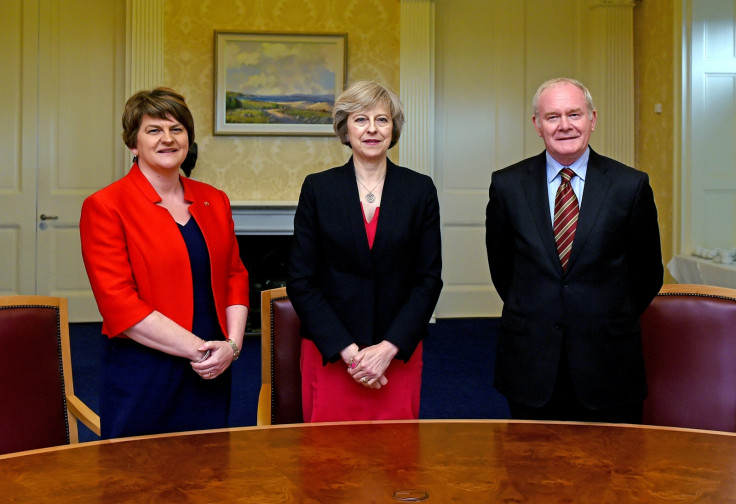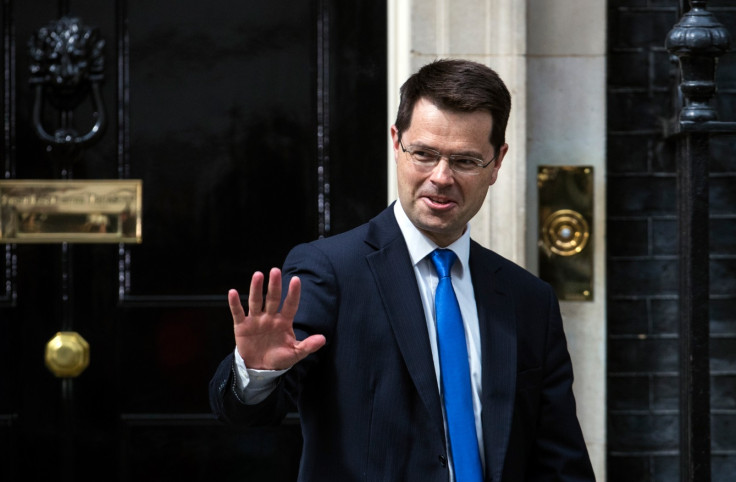NI secretary calls for probe into heating scheme that's 'highly likely' to topple Stormont
A new election in Northern Ireland has sparked fears of a delay in Brexit negotiations.
The Northern Ireland Secretary has called for an inquiry into a crisis-hit renewable heating scheme that looks set to cause a snap election in the province and complicate the UK's Brexit negotiations.
Sinn Fein's Martin McGuinness quit as deputy first minister in protest at the first minister, Arlene Foster's refusal to stand aside to allow a probe in the Renewable Heat Incentive (RHI) scheme, which could cost taxpayers hundreds of millions of pounds.
James Brokenshire told the Commons on Tuesday (10 January) that "as things stand therefore an early Assembly election looks highly likely.
"The situation we face in Northern Ireland today is grave and the government treats it with the utmost seriousness," he told MPs.
The RHI intended to subsidise eco-friendly boilers, when Foster was economy minister. But the subsidy tariffs were not capped, and was exploited by some who got payouts surpassing the price of fuel, in a controversy known as "cash for ash".
The secretary of state said it was devolved matter in which the United Kingdom government has no direct role and that it was up to Stormont to address the crisis.
"But I do believe it is imperative that a comprehensive, transparent, and impartial inquiry into the development and implantation of the scheme needs to be established as quickly as possible," Brokenshire said.

The resignation of McGuinness as Northern Ireland's deputy first minister could also complicate delicate Brexit negotiations ahead of the triggering of Article 50.
The majority of people in Northern Ireland, 56%, voted Remain in the EU referendum, a stance backed by McGuinness' Sinn Fein party, although the British province is ruled by the Brexit-supporting Democratic Unionist Party, (DUP) which Foster leads.
With Brexit a key topic in any new elections, it could stall Theresa May's pledge to trigger Article 50 in less than three months. In addition to a ballot in Northern Ireland, Brexit talks would also coincide with elections in the Netherlands and campaigns for the French presidency and a federal ballot in Germany.
Meanwhile, Northern Ireland's former first minister, David Trimble, who helped broker the Good Friday Agreement that led to power-sharing in the Assembly, said that it would not a foregone conclusion that any new election would see the automatic return to power of the DUP and Sinn Fein, which he said approved the scandal-hit energy scheme.

"In the last year, the SDLP decided to go into opposition and they were becoming increasingly effective as an opposition. The question is whether those two parties will be in a position to offer the electorate an alternative.
"We are in somewhat uncharted waters... I have a horrible feeling that a campaign with the usual slogans producing the same results, there might be the possibility of things being different," he told the BBC's Today programme.
Northern Ireland would have the only land border between the UK and the EU after Brexit raised the prospect of border tariffs and checks of identity documents between the north and the south.
Meanwhile, the Republic of Ireland's European Union agriculture commissioner, Phil Hogan, said Brexit could mean a "hard" border between the north and the south of the island, if the UK left the single market.
Hogan told the Irish Independent that the EU would need to treat both sides of the border as a single unit, post-Brexit.
© Copyright IBTimes 2025. All rights reserved.






















